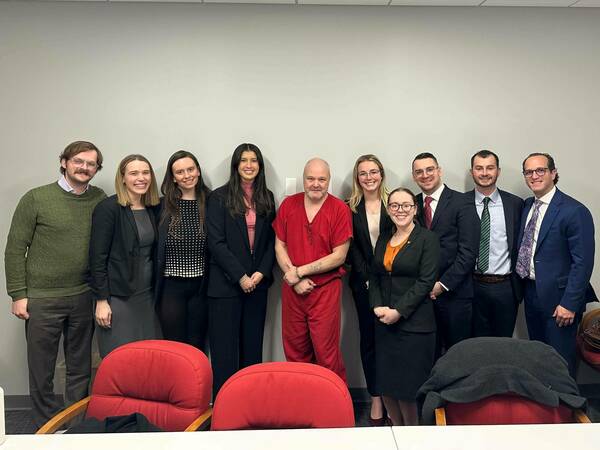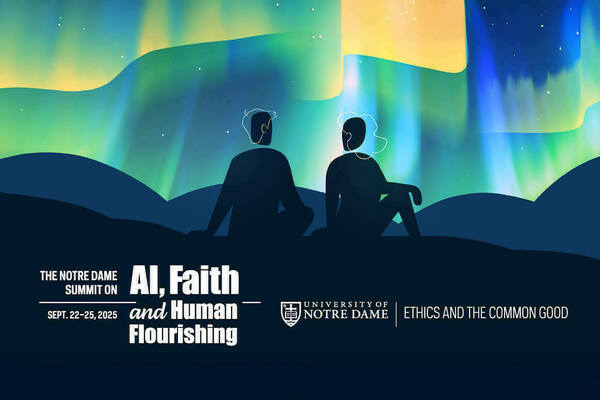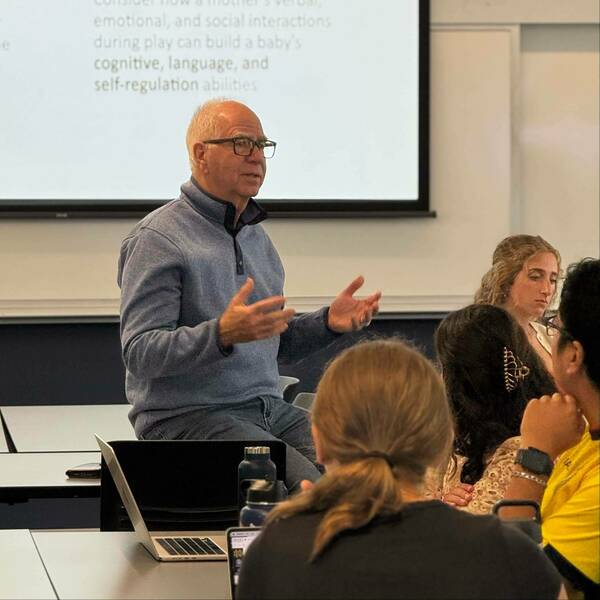Notre Dame-IBM Technology Ethics Lab Supports Pulitzer Center’s AI Spotlight Series
In partnership with the MacArthur Foundation and the Ford Foundation, the Notre Dame-IBM Technology Ethics Lab is pleased to announce its support for the AI Spotlight Series, a program presented by the Pulitzer Center and “designed to equip reporters and editors—whether on the tech beat or any other—with the knowledge and skills to cover and shape coverage of AI worldwide.”
Designed to train 1,000 reporters and editors with an emphasis on journalists from the Global South and from communities underrepresented in media, the program consists of three tracks: an introductory class for reporters on any desk, an in-depth course for reporters focused on covering AI or deepening their knowledge of AI reporting; and a module for editors commissioning stories and thinking strategically about their team’s overall coverage. Noted technology journalists, including Karen Hao, Gabriel Sean Geiger, and Gideon Lichfield, will lead a series of online courses designed to provide journalists with the knowledge and tools they need to report on artificial intelligence and its potential societal, economic, and political impacts.
"As AI becomes increasingly pervasive, society must better understand its promise, challenges, and potential societal impacts,” says Nuno Moniz, managing director of the Notre Dame–IBM Technology Ethics Lab. "It's critical to provide training and tools to the journalists who will influence how the world understands artificial intelligence, and the AI Spotlight Series is a significant step in that urgent direction."
“The rapid expansion of AI is unprecedented and magnifies the need for responsible reporting on its profound influence on society and business,” said Catherine Quinlan, Vice President, AI Ethics at IBM.
The Pulitzer Center, founded in 2006 and based in Washington, D.C., supports journalists operating in more than 80 countries who cover international and systemic crises and under-reported stories across the world.
Formed in 2020 and funded by a 10-year, $20 million commitment from IBM, the Notre Dame-IBM Technology Ethics Lab’s mission is to promote human values in technology through applied projects that address core ethical challenges of the digital age. The Tech Ethics Lab is a part of the Notre Dame Ethics Initiative, a cross-campus effort to establish Notre Dame as a premier university for research in ethics that guides and strengthens public understanding of the most significant ethical issues of our time, including ethical challenges related to emerging technologies.
Originally published by at techethicslab.nd.edu on April 11, 2024.
Latest Research
- Managing director brings interdisciplinary background to Bioengineering & Life Sciences InitiativeThis story is part of a series of features highlighting the managing directors of the University's strategic initiatives. The managing directors are key (senior) staff members who work directly with the…
- Monsoon mechanics: civil engineers look for answers in the Bay of BengalOff the southwestern coast of India, a pool of unusually warm water forms, reaching 100 feet below the surface. Soon after, the air above begins to churn, triggering the summer monsoon season with its life-giving yet sometimes catastrophic rains. To better understand the link between the formation of the warm pool and the monsoon’s onset, five members of the University of Notre Dame’s Environmental Fluid Mechanics Laboratory set sail into the Bay of Bengal aboard the Thomas G. Thompson, a 274-foot vessel for oceanographic research.
- Exoneration Justice Clinic Victory: Jason Hubbell’s 1999 Murder Conviction Is VacatedThis past Friday, September 12, Bartholomew County Circuit Court Judge Kelly S. Benjamin entered an order vacating Exoneration Justice Clinic (EJC) client Jason Hubbell’s 1999 convictions for murder and criminal confinement based on the State of Indiana’s withholding of material exculpatory evidence implicating another man in the murder.
- Notre Dame to host summit on AI, faith and human flourishing, introducing new DELTA frameworkThe Institute for Ethics and the Common Good and the Notre Dame Ethics Initiative will host the Notre Dame Summit on AI, Faith and Human Flourishing on the University’s campus from Monday, Sept. 22 through Thursday, Sept. 25. This event will draw together a dynamic, ecumenical group of educators, faith leaders, technologists, journalists, policymakers and young people who believe in the enduring relevance of Christian ethical thought in a world of powerful AI.
- Preparing Global Leaders: Notre Dame Students Put Early Childhood Development Science into PracticeThis fall, Notre Dame students are turning research into real-world solutions. In a unique course, Early Childhood Development and Poverty Alleviation: A Global Perspective, 27 students are learning how the science of early childhood development can break cycles of poverty — and then applying…
- How can we have better conversations about environmental conservation? New Notre Dame research charts a path.As the planet faces mounting environmental crises, including a decline in global biodiversity, a new study from the University of Notre Dame calls for a seemingly simple yet transformative practice: better conversations. In a co-authored paper published in Conservation Biology, Daniel C. Miller outlines five key principles to foster more effective and inclusive dialogue about conservation. The paper builds on more than a decade of collaborative work in conservation social science and presents a framework to address one of the field’s most pressing yet underexamined issues—how conservationists talk to one another.













